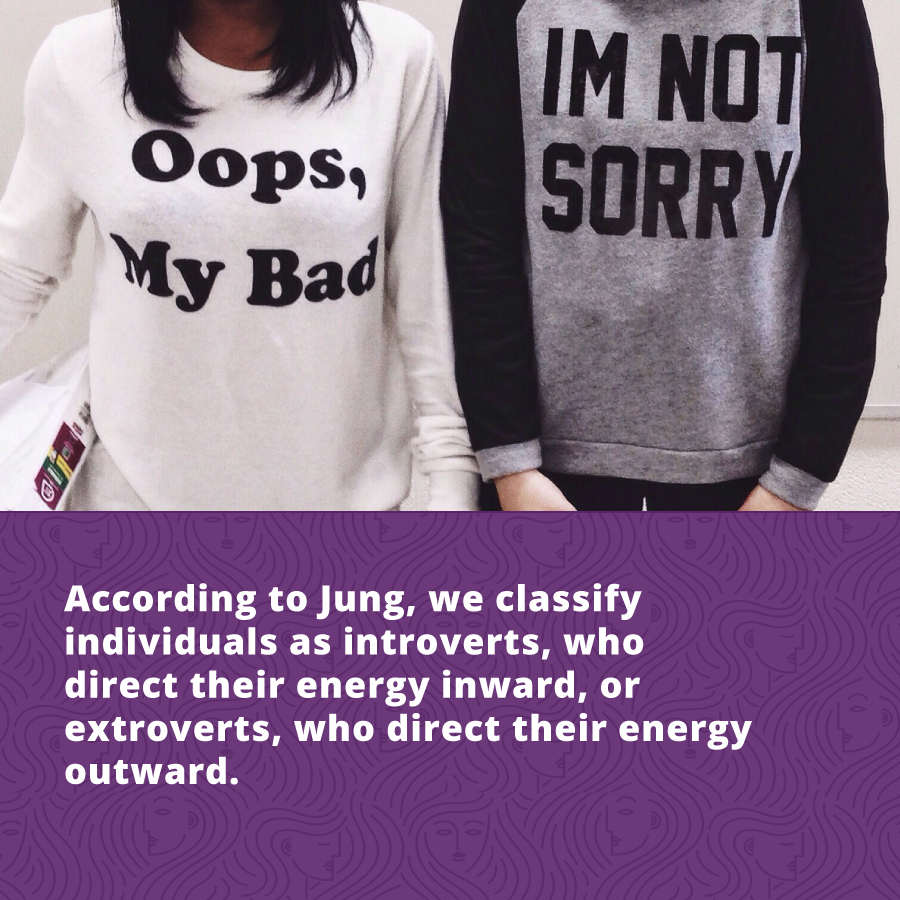How Do You Quarantine? Tips on Thriving (and Surviving) for Each Personality Type
How Do You Quarantine? Tips on Surviving (and Thriving) for Introverts and Extroverts
The global pandemic has been difficult for every one of us, regardless of our personality type. Our futures, individually and collectively, are no longer certain. Our economy has taken a devastating hit, and unemployment is at an all-time high. Jobs, feel tenuous, for those lucky enough to remain employed. Working from home has presented unforeseen challenges, including having to take care of and educate our children, accommodate those spouses and partners who are also working from home, and remain focused and productive during work hours. As we well know, too much of anything can be detrimental to our health. At this period or moment in history, we’ve had too much: too much stress, too much isolation, too much alone time, too much partner time, too much unstructured time, too much time in Zoom meetings, too much time to think about the scary state of the world we live in — it’s all been too much. However, if you know yourself, you’ll be better able to make the adjustments you need to at least survive during this uncertain time. Who knows— quarantine might even allow you to get acquainted with a hobby, interest, long-lost friend, or a side of yourself you never knew you had!

Personality Types 101
There are many different ways to analyze and classify your personality. Perhaps one of the most famous is the Myers-Briggs personality model/theory. This personality theory is based on the work of renowned psychologist Carl Jung, whose Personality Theory designated people as either introverted or extroverted, and created subtypes from those two basic delineations.
According to Jung, we classify individuals as introverts, who direct their energy inward, or extroverts, who direct their energy outward. Many people misperceive extroversion as being entirely social all of the time, talking loudly, and generally being very outgoing. By the same token, people think of introverts as shy, self-isolating, and withdrawn or quiet in demeanor. Although there are outgoing extroverts and shy introverts, these descriptors are not accurate nor ultimately useful. Therefore, it is important to remember two things when discussing introversion and extroversion: first, most of us have a bit of both in us and are known as ambiverts; second, what separates the two is merely to do with where one’s energy is focused. It doesn’t have anything to do with quietness or sociability.
When Isabel Briggs Meyers and her mother Katharine Briggs created their MBTI or Myers Briggs Type Indicator in 1944, they used Carl Jung’s personality theory as a guide. In creating this assessment, the two hoped to formulate a well-researched and effective way for people to not only understand themselves but also work, live, communicate, and coexist with others productively.
Know Yourself
How do you know whether you’re an introvert or an extrovert? Well, there are many quizzes online, including this one, but for our purposes, here are a few quick descriptions of each personality type to give you a better idea of where you might fall between the two on the spectrum.
Extroverts:
- focus their energy outward
- generally need more social stimuli and interaction with others
- are usually but not exclusively more outgoing and talkative than their introvert counterparts
- feel more comfortable in groups
- need to seek out new experiences
- enjoy having a full schedule
- act first, think later
Introverts:
- focus their energy inward
- generally need less social stimuli and interaction with others
- are usually but not exclusively less inclined to be the center of attention in social situations
- enjoy and require periods of solitude and reflection
- feel more comfortable one-on-one
- observe first, act later
You likely can relate to examples from each category, which is completely normal. Very few people are entirely extroverted or introverted.
Quarantine Challenges and Solutions
When you think of people who are challenged by this quarantine, you think of extroverts. Their lifeblood — being social and interacting with people and groups of people— has been essentially stripped from them. Yes, there is Zoom. But it’s just not the same, and from recent articles, we know that these meetings can be energy-zapping rather than energy-giving.
So what to do?
Here are some tips for extroverts:
Keep up with your social circle(s): Call, text, zoom, Facetime, engage on social media, or visit others while maintaining the 6 ft rule. Do anything within the bounds of safety to stay connected, and vary these tactics to avoid burnout.
Figure out new ways to recharge: Maybe you can’t sit still. Maybe Netflix is an anathema to you. Regardless, there are likely many ways to recharge your batteries that might not involve communicating with others. What about dancing? Cooking? Learning a new language? Anything where you can expend all that energy and use a part of your brain that is used generally in socializing with other people.
Exercise: This is a perfect activity for extroverts because it’s a great way to burn off excess energy that you would typically direct outward. You can still direct this energy outward when you exercise— it just won’t be exchanged.
In a nod to the introverts, who are, contrary to popular belief, also struggling, I would advise the same things. Because let’s be real here: there’ve been a million and one memes on how this quarantine has been just dandy for introverts. But after 60+ days of it, there’s a part of every one of us, introverts included, that is ready to get out there and ENGAGE. And that’s a human thing— not relegated to any specific person or personality. It’s not just extroverts who are struggling with this new reality —- it’s all of us.
Specific (Fun) Recommendations by Personality Type
Don’t know your Myers Briggs’ Personality Type? Take a quiz here!
Structured Extroverts (ESTJ, ENTJ, ESFJ, ENFJ)
- You like for everything to have a system, and your wardrobe is no exception. For your “in charge” personality, we like MMLaFleur’s mix-and-match pieces that can take you from the boardroom to the kitchen.
- Projects for you right now might include a bedroom, kitchen, or bathroom upgrade, or reorganizing your closet. Things that provide more structure to your environment.
- Watch Never Have I Ever, a funny Mindy Kaling-produced sitcom on Netflix about an overachiever with a bit of a smirky attitude, for fun.
Structured Introverts (ISTJ, INTJ, ISFJ, INFJ)
- There’s a tendency for these types to want to have a uniform, especially when you’re in isolation. Wear coordinated and sophisticated, yet comfortable and casual, clothing that will take you from Zoom meetings to the sofa and back. We like Cuyana or Lululemon.
- Projects for you right now might include a creative project — 500 words a day? 20 minutes of photography work per day? You name it, you’ll add structure and chip away at it while in quarantine!
- There’s no better time to catch up on your reading — we’re loving Emma Straub’s All Adults Here.
Freedom-Loving Extroverts (ESTP, ENTP, ESFP, ENFP)
- You like to mix things up, and your interpretation of quarantine may be “no limits” when it comes to your wardrobe (and maaaaybe even a day or two in your pajamas)! For your freedom-loving personality, we say, go ahead and wear the lounge pants (or even pajama pants), but pair it with a fun top. We love the variety at Anthropologie right now.
- Projects for you right now might include creating an artwork arrangement in a favorite room, or starting a garden. Things that allow you to better express yourself in your environment.
- Watch Tiger King, as well as watching your favorite people get on Zoom for a Happy Hour as often as you can!
Freedom-Loving Introverts (ISTP, INTP, ISFP, INFP)
- There’s a tendency for these types to rebel against traditional fashion norms, and that’s also true while you’re in isolation. For you, we recommend being yourself and not changing your wardrobe, other than having a quality blazer or cardigan to throw over top. We like the options at Everlane.
- Projects for you right now might include a bedroom, kitchen, or bathroom upgrade, or reorganizing your closet. Things that provide more structure to your environment.
- There’s no better time to catch up on your reading — we’re loving The Ballad of Songbirds and Snakes, a Hunger Games sequel.
With that in mind, stay gentle with yourself as you continue to navigate this challenging time. Follow these tips— and add a splash of screen/news outlet breaks— if you like, but when it comes down to it, there’s only one way to handle this unprecedented societal crisis: in any and every way that is best for YOU.

